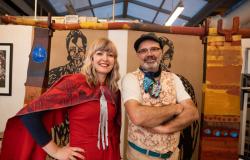– The hell take the absurd war. My heart is bleeding. That’s why I paint those pictures.
The painter Willibald Storn leaves little doubt about where he stands. Neither do his latest pictures.
If someone still doesn’t see the drawing, they have painted words such as “Gazahausen” and “child murder”. Now Dagbladet’s readers will be among the very first to see the new paintings – in this article.
– One or two friends have seen some of them. My boyfriend hasn’t seen all of them either, says Storn in his studio at Kampen in Oslo.
– War in the genes
Willibald Storn has long been known as a rebel.
In 1969, he was fined for letting his pants fall, according to Aftenposten, during a public debate entitled “What shall we do with art today?”
On the website of the (Nicolai) Tangen collection, which will exhibit another side of his art in May, it says that he has “stood on the barricades for over 60 years”.
But the start was humble. Growing up in Austria during the war, he experienced the Allied bombing of Vienna.
– They came from Italy, flew over our village outside Vienna, and flew back. We children were either under the bed or in the basement. Of course we were scared as hell.
It marked him deeply. He tells Dagbladet that it is “in his genes”.
These were killed
“Black Sun”
That is why the war in Gaza does not leave him alone.
– It is absurd to murder 10,000 children. They are innocent, he says, raising his voice.
He points to one of the pictures and explains what they are about.
– It has to do with superiority, with being victim and victor. You can go over there and read that poem I wrote yesterday.
GAZA ART: The war in Gaza has prompted the artist Willibald Storn to paint strong pictures about the conflict. Photo: Bjørn Langsem / Dagbladet
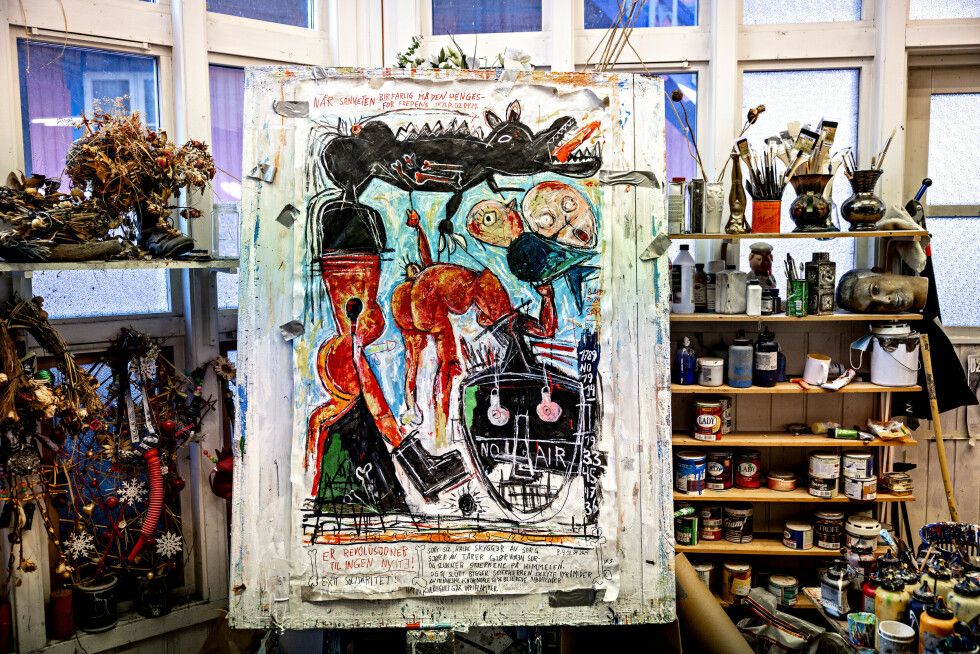
BLACK SUN, COLD SHADOWS: This is how the poem the artist Willibald Storn has written under this strong image begins. Photo: Bjørn Langsem / Dagbladet
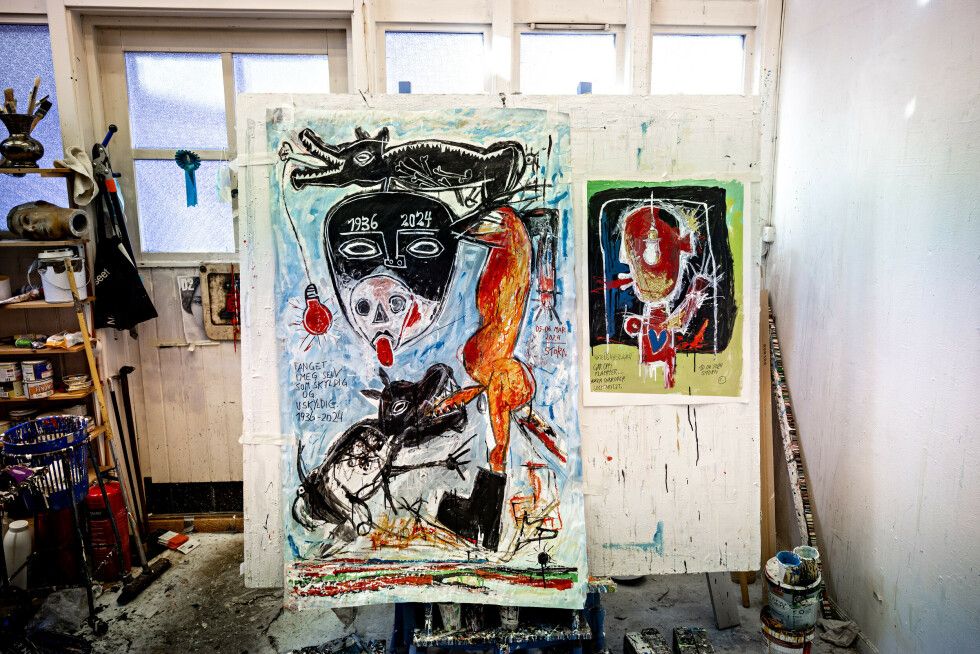
SELF-PORTRAIT: A kind of self-portrait, says Willibald Storn about this picture with two years: His year of birth and 2024. Photo: Bjørn Langsem
“Black sun, cold shadows of sorrow,” begins the text under a large painting with bright colors; black red and blue.
The picture is one of those we reproduce today. Another shows two black wolves, and two years. One of them is 1936, when Storn was born.
– It is a kind of self-portrait, he explains.
– Believed in people
Storn says that what is happening in Gaza and Ukraine, and with the climate, affects him deeply. Themes such as war and the climate have engaged him since the 1960s.
– It wasn’t how you hoped the world would turn out, at the time?
– No. I was so happy, from the 1950s onwards. I went to art school and traveled to sea, and was happy every day. I believed in people.
Unique pictures
When Dagbladet asks if he still does it, he replies that he is “sceptical”. He fears that in a hundred years the world will have weathered completely, if things continue as they are now.
– Of course, we have a chance that it won’t happen, but do we take care of it, he asks rhetorically.
Right now he feels it looks pretty bleak.
– I actually don’t dare turn on the radio and TV. I cannot see Gaza being bombed back to the stone age.
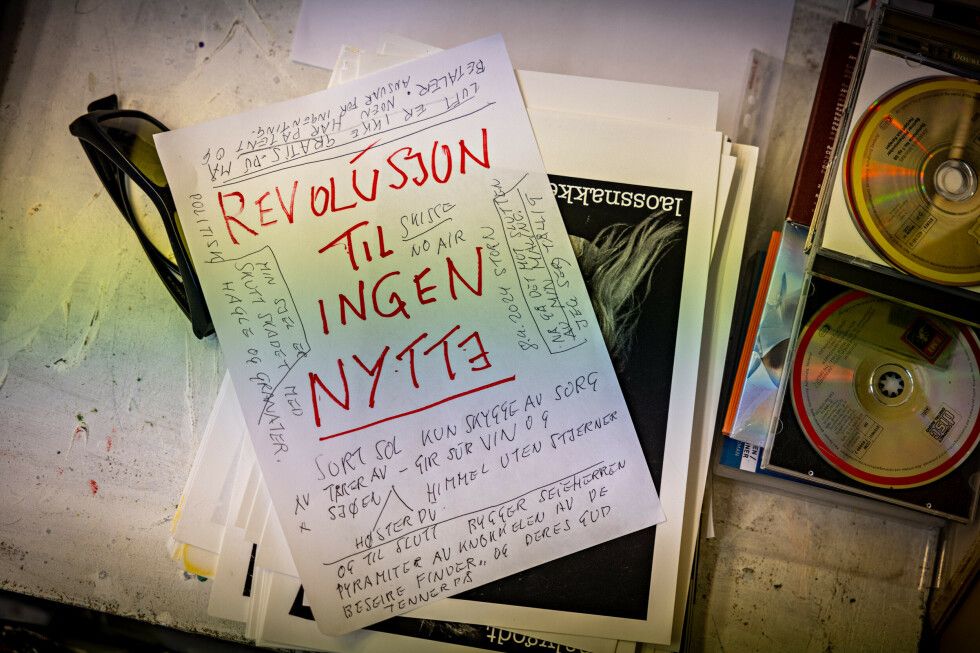
HAS LOST ILLUSIONS: Willibald Storn’s poem that stands together with the pictures shows that he has lost illusions. Photo: Bjørn Langsem / Dagbladet
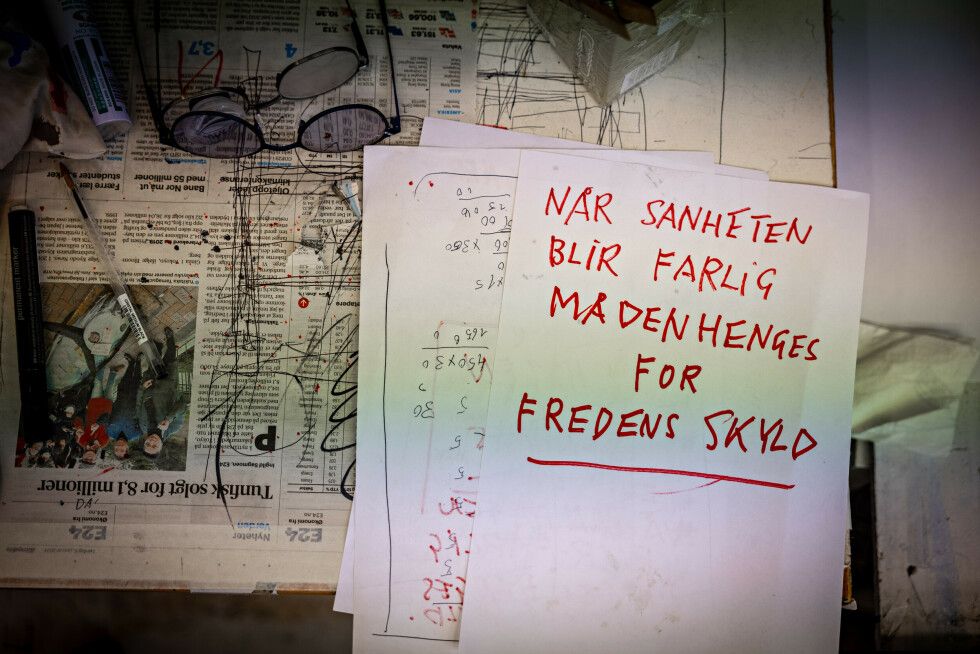
HAS LOST ILLUSIONS: Willibald Storn’s poem that stands together with the pictures shows that he has lost illusions. Photo: Bjørn Langsem / Dagbladet
Using the voice
In front of Storn on the floor in the studio are nine pictures. In another room, there are even more people talking about the war raging in Gaza.
– Perhaps, in retrospect, they will see that there were artists who got involved, who were not quiet. I have experienced war. I want to use the little voice I have. It’s a farewell from the paradise of madness, he says – somewhat enigmatically.
He later reiterates that it is his goal; to bear witness to what he calls “the farewell from the paradise of madness”.
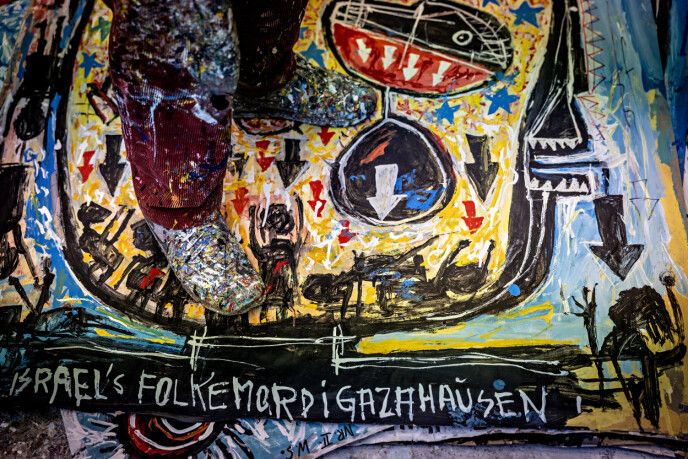
TAKING A POSITION: – It has to do with superior power, with being victim and victor, says Storn about the pictures he paints of the Gaza war. Photo: Bjørn Langsem / Dagbladet
view more
He misses more colleagues getting involved.
– Are you going to tell just your girlfriend, that “I feel depressed”, or are you going to go out and show a clenched fist, he asks.
For him, it’s easy.
– I cannot walk silently through the doors, knowing that 10,000 children have been killed in Gaza. I have to do something about it, says Willibald Storn.









